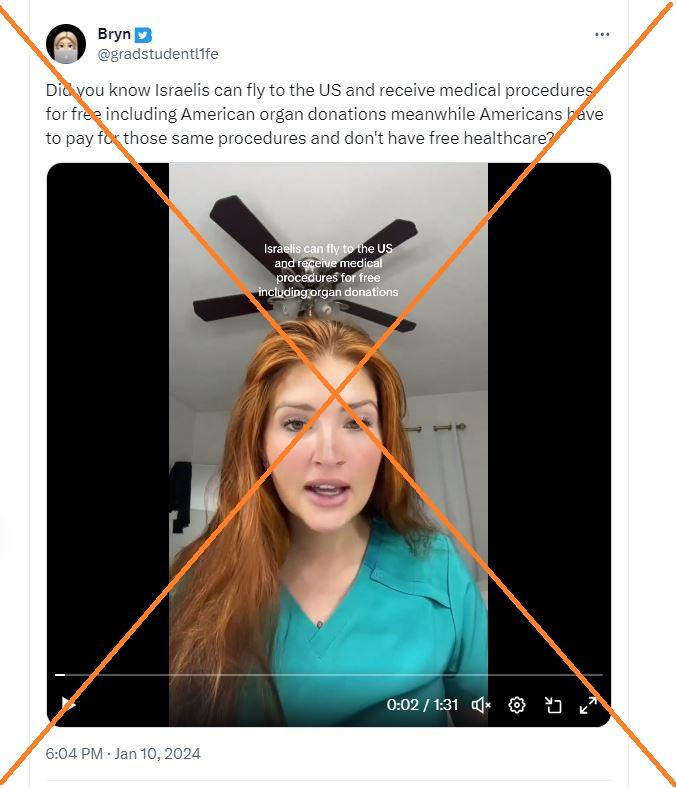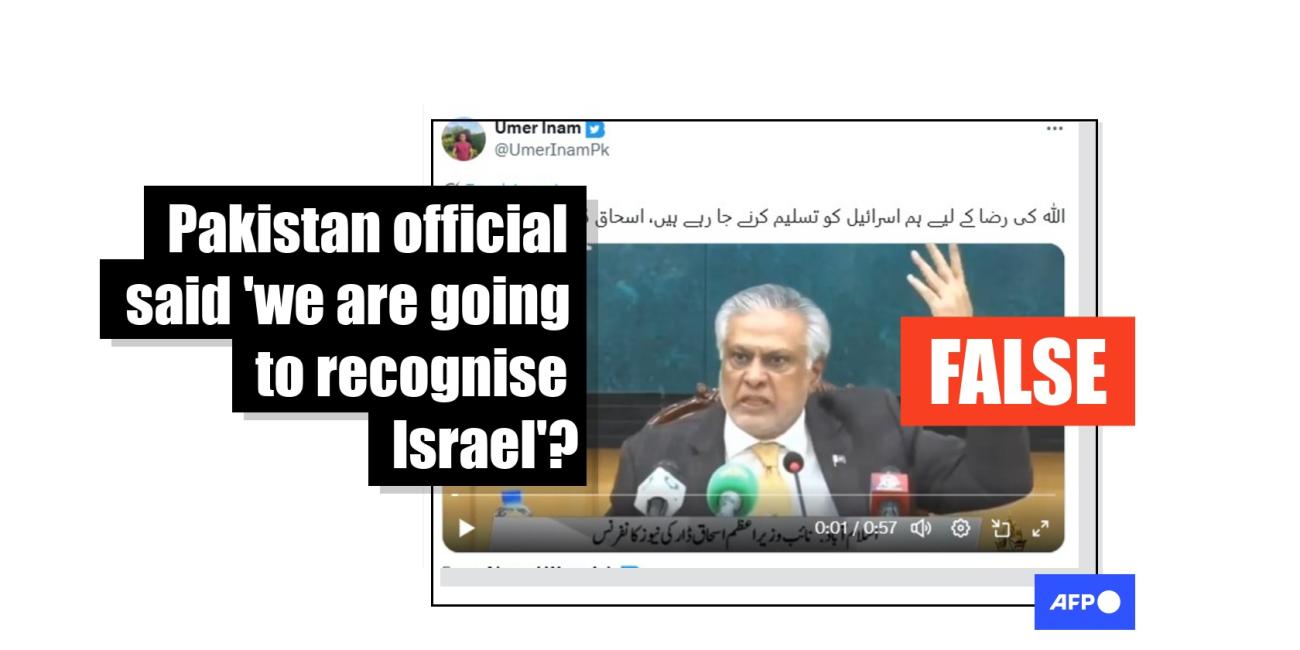
Experts refute claims that Israelis get free US medical treatment
"Did you know Israelis can fly to the US and receive medical procedures for free including American organ donations meanwhile Americans have to pay for those same procedures and don't have free healthcare?" says a January 10, 2024 post on X, formerly Twitter, with thousands of interactions.
The post includes a clip that also appeared elsewhere on X, TikTok and YouTube amid deep divisions in the United States over support for Israel's ongoing war against Hamas.

The conflict erupted October 7, 2023 when militants associated with the Palestinian Islamist movement stormed into Israel from the Gaza Strip, killing some 1,140 people -- mostly civilians -- and taking about 250 hostages, according to an AFP tally based on official Israeli figures.
Israel has vowed to eradicate Hamas, relentlessly bombing Gaza in a campaign the Hamas-run health ministry says has killed more than 24,200 people -- also mostly civilians.
Amid the fighting, protests have escalated against the Biden administration's support for Israel.
The United States has sent Israel drones and air defense equipment and provided some $6 billion in aid in the past fiscal year (archived here). President Joe Biden has requested an additional $14 billion for Israel as part of a broader measure supporting Ukraine, which has stalled in Congress.
The United States has also granted a visa waiver for Israelis, making it easier for them to travel to the country (archived here). But claims of free medical care are inaccurate.
"Our health care system is incredibly complicated, but there is nothing in it that gives special preferences to Israelis," said Wendy Parmet, director of the Center for Health Policy and Law at Northeastern University, in a January 12 email.
'Very limited access'
Some immigrants who become legal permanent residents can obtain Medicaid, which offers free or low-cost coverage for those who meet state income and residency requirements (archived here). Most programs have a five-year waiting period for residency.
The government waives those restrictions for some people, including refugees, asylum seekers, Cubans, Haitians, battered spouses or children, and victims of trafficking.
Parmet said Israelis who are also US citizens may have access to care and insurance under the same terms as other Americans. But if they are visitors or tourists, they "are not eligible for federally-funded health insurance."
Michelle Mittelstadt, director of communications at the nonprofit Migration Policy Institute, confirmed access to medical care is difficult for non-Americans.
"Speaking broadly, foreigners coming temporarily to the United States from any country and even immigrants who have lived in the US for several years would have very limited access to free health care -- and this would chiefly be emergency care if they were unable to pay for it in an acute situation," Mittelstadt said in a January 11 email.
"Temporary visa holders as well as most immigrants with green cards who have less than five years of US residence (there are exceptions for children and pregnant women) are ineligible for federal public health care programs."
The Kaiser Family Foundation, a health policy research organization, notes a high percentage of non-citizens lack access to insurance and, as a result, medical care (archived here).
Medical visas
Most individuals traveling to the United States specifically for medical care must obtain a temporary visa, according to the State Department (archived here).
Polly Price, a professor of law and global health at Emory University, told AFP that medical visa applications for non-citizens "must include proof that there are sufficient funds to pay for the expected treatment in the US."
Charities or other governments can provide that money, she said, but "no US government money can be applied toward medical costs for treatment of a non-US citizen."
A list from the nonprofit American-Israeli Cooperative Enterprise (archived here) details dozens of agreements between the United States and Israel in the areas of education, science and security -- but none allowing free health care.
According to Israel's National Health Insurance Law, all residents are required to be covered by medical insurance. Four service providers offer coverage, and some including Maccabi, may have paid plans that will reimburse patients for surgeries and treatments that take place outside of Israel (archived here).
Non-Americans may request a place on the waiting list for organ transplants, priority for which is determined by medical factors, disease severity and other criteria, according to the United Network for Organ Sharing (UNOS).
But the nonprofit, which manages the US transplant system under contract with the federal government, says many candidates have difficulty affording the costs, which can range from $347,000 to more than $1.3 million, according to the National Foundation for Transplants.
AFP has fact-checked other claims about the Israeli-Palestinian conflict here.
Copyright © AFP 2017-2026. Any commercial use of this content requires a subscription. Click here to find out more.
Is there content that you would like AFP to fact-check? Get in touch.
Contact us




